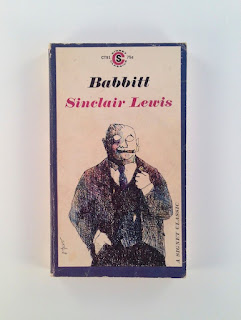The Chicago Blackhawks recently decided to drop 83 year old former star Bobby Hull as an “ambassador” to the club under the pretext that they were re-evaluating the ambassador role after the recent deaths of Blackhawk legends Stan Mikita and Tony Esposito, and claiming the departure was mutual.
In 2008, John McDonough brought
Hull, Mikita, Esposito, Chris Chelios and Denis Savard back to promote the team
after “Dollar” Bill Wirtz had served up a mediocre product for years and
wrecked the team’s image. By the time
Wirtz died, and son Rocky took over, the city was largely indifferent to the
team. It reached a nadir in 2004 when
the team honored Keith Magnuson after his tragic death in a car accident. I was at that game, and it was sad to see
Magnuson’s family introduced at the United Center which was only about 1/3
full.
McDonough wisely understood that
there was a latent residual attachment to it left over from the early
1970’s. Along with signing some top
talent to make the team competitive again, he brought back these players to rekindle
that fan base. And it worked. The Blackhawks were able to recharge the
team, fill the United Center and win three Stanley Cups. Even better, the team upgraded its fan base
from a bunch of rowdy drunks to families, business people and young guys taking
their girlfriends out on dates.
But Blackhawks’s fortunes have
changed in recent years as they have sunk back to mediocrity. The team aged out and the Hawks fired Joel Quenneville,
the coach that took them to their cup victories. Worse, the Hawks were plagued by the scandal
of player Kyle Beach, who was sexually assaulted by a staff member, and the
assault was covered up by the organization, who apparently gave Brad Aldrich a
favorable send off, where he purportedly assaulted another player at Miami of
Ohio.
Jettisoning the Golden Jet comes
shortly after Rocky Wirtz’s horrendous press conference in which he aggressively
and brusquely shut down questions about what the Blackhawks were doing to ensure
that another Kyle Beach situation would not occur.
After the termination of Hull, several
sports commentators jumped on board, saying that Hull was a “terrible person”
and that the Blackhawks were right in severing their relationship with him,
citing his assault on a police officer that tried to intervene in the domestic abuse
at his home. Hull apparently was a repeat
abuser and some of the reported incidents were ghastly. He also is quoted as
saying that “Hitler had some good ideas” and that the “black population in the
U.S. was growing too fast.”
Now, I hardly wish to defend Hull
for these things, or excuse it. Domestic
abuse is a very serious thing. And, if
true, those quotes were abhorrent. No
doubt about that.
But I find it a bit disingenuous
of the Wirtz family to suddenly decide that Hull presents an image problem for
them. These were facts that were known
to them AT THE TIME THEY ENGAGED HULL as an ambassador back in 2008. None of this was new or recently discovered.
Hull was adored by Chicago fans.
Wirtz was more than happy to overlook these flaws when the franchise was intent
on rebuilding its brand and reviving a moribund team. Now that the Blackhawks are on a steady
downward slope, Hull is no longer useful to them.
I find it ironic that it is exactly
50 years ago that the Blackhawks organizing turned its back on Hull. In 1972, Hull received a competing offer to
play in the competing WHA. Hull later
said he would have accepted less money to stay in Chicago but old man Arthur
Wirtz didn’t bother to speak to him or make a counteroffer of any sort. To the shock and dismay of Chicago fans, he
up and left the city that loved him.
Fifty years later, the Wirtz
family abruptly does it to Hull again.
Since the mid 80’s, there have
been no reports of bad behavior on the part of Hull, so perhaps he has changed his ways.
The Wirtz family, however, has
not changed theirs.


